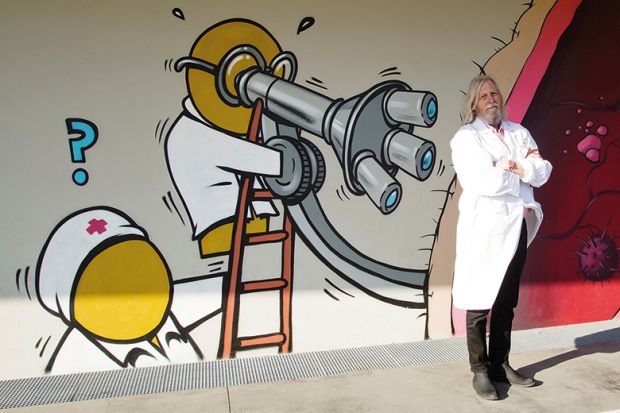More than a third of the public now believe scientists are hiding
information – confusion over masks and broadsides from a ‘populist’
microbiologist are blamed
A survey has revealed that the French public has lost confidence in
scientists during the coronavirus pandemic, largely because of a policy
U-turn over face masks and the antics of a “populist” microbiologist who
has vocally championed hydroxychloroquine, the treatment touted by
Donald Trump.
Since the crisis began, trust in science appears to have risen in the UK, Germany and – at least among Democratic voters – the US.
But science policy experts have warned that researchers could face a backlash
from a frustrated public as lockdowns drag on and a blame game begins,
and France appears to be the first country to produce evidence that the
mood has soured.
At the start of the crisis in mid-March, 84 per cent of the French
public had confidence in scientists. Now, according to the latest data
from late May, this has dropped to 74 per cent.
This is still far higher than the confidence reported in the
government, the president and the media. Nonetheless, “there’s a
significant decline in confidence”, said Sylvain Brouard, research
director of the National Political Science Foundation at Sciences Po and one of a team tracking public opinion in France during the pandemic.
Meanwhile, over the same period, there has been a rise in the
proportion of people who say scientists are hiding information about the
coronavirus from the public. Thirty-six per cent of respondents now
believe this is the case.
Dr Brouard attributes this shift in mood, which began in mid-April,
to two controversies that have played out in the French media.
The first is confusion over face masks. Initially, the government
said there was no scientific evidence in their favour, he explained, and
official scientific advisory groups did not contradict this.
But later, the government changed tack, and the wearing of face masks
is now compulsory on public transport. “It’s a complete reversal of
policy,” Dr Brouard said.
The second incident to shake public trust is that of Didier Raoult,
director of the Mediterranean Infection Foundation in Marseilles, whose
early – and much criticised – study of hydroxychloroquine set off hopes
that it could be an effective treatment for Covid-19. In late May, Mr
Trump revealed that he was taking hydroxychloroquine despite there being
no conclusive evidence of benefits.
Professor Raoult has vocally defended the treatment in the French
media − and to his more than half a million Twitter followers −
dismissing a decision at the end of May to stop using hydroxychloroquine
on patients by France’s top public health council.
That decision followed a major study in The Lancet that
found that the drug was associated with higher mortality and heart
problems. But after questions about the study’s data, the article has
been retracted. “The house of cards is collapsing,” Professor Raoult tweeted, although he had previously questioned the data himself.
He has even challenged France’s minister of health to a public
popularity contest. A follow-up survey found Professor Raoult to be
somewhat more trusted, particularly outside Paris and among the poor and
unemployed.
“Raoult seems to adopt a populist stance in which the ‘people’ would
become the arbiter of scientific truths,” said Michel Dubois, a
sociologist based at Sorbonne University.
“Many scientists in France are concerned about the image Raoult and his
observational studies may give of French research abroad.”
Opposition conservative MPs have backed Professor Raoult and
hydroxychloroquine, explained Dr Brouard. The scientific debate had been
polarised, and public trust likely damaged, he said. The public see
“one prominent medical professor saying he has a good answer to the
disease and the government doesn’t want to use it”, he added.
A separate opinion poll
taken in early May found that half the French public believed that when
scientists disagreed about the coronavirus, this was because they were
defending their “private financial interests”.
https://www.timeshighereducation.com/news/french-trust-science-drops-coronavirus-backlash-begins

